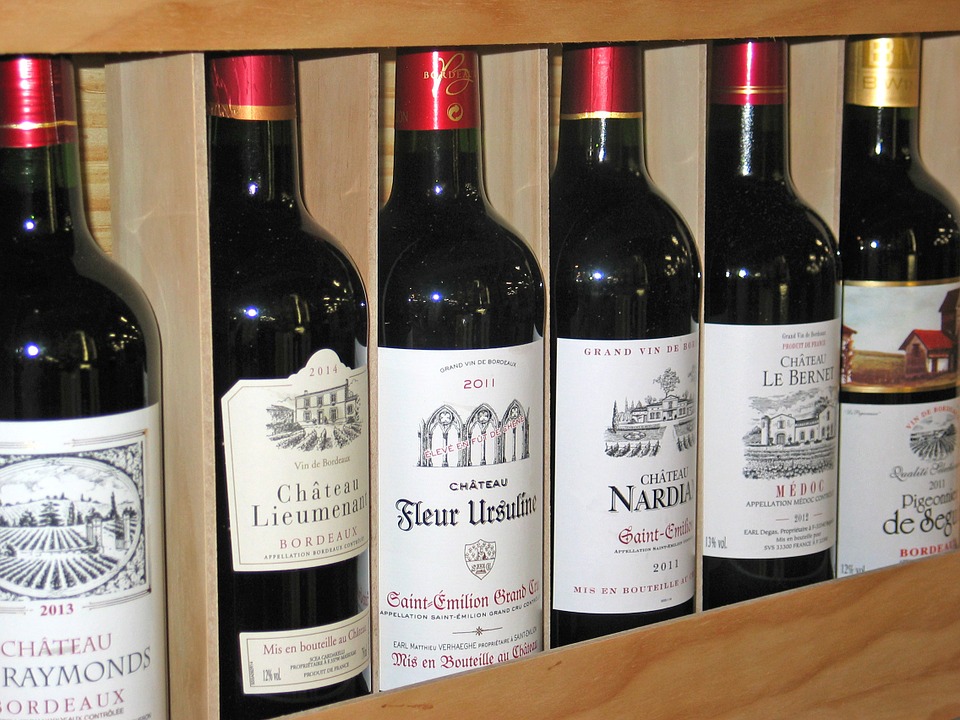Humans have been making wine since pre-historic times, with the discovery of alcoholic beverages made from honey dating thousands of year back. Throughout the millennia, new methods for wine-making have cropped up. This time, a study claims that using magnetic treatment might lead to the removal of undesirable tastes in wine.
The study was published in the Journal of Agricultural and Food Chemistry. It notes how magnetic polymers can be used to get rid of the unpleasant taste caused by the high levels of concentration of 3-Isobutyl-2-methoxypyrazine (IBMP). According to the researchers, IBMP is a “potent odorant present in grapes and wines” that can essentially suppress the more desirable traits and aroma of the beverage.
“This work investigated pre- and post-fermentation addition of a putative imprinted magnetic polymer (PIMP) as a remedial treatment for elevated concentrations of IBMP in Cabernet Sauvignon grape must in comparison to nonimprinted magnetic polymer (NIMP) and to a commercially available polylactic acid (PLA) based film added post-fermentation,” the paper reads.
Through chemical and sensory methods, the researchers concluded in their analyses that the treatment worked. They were basically able to remove the unpleasant taste and smell while preserving the fruity bouquet of the wine.
As Phys.org notes, wines inevitably rely on the substances present in them to provide the liquid with distinctive qualities. These qualities often come up via the smell, texture, combination of aroma, and, finally, the blend of the taste.
In wine-making, the goal is to always bring out the pleasant bouquet of the fruits used while putting the plant-based properties in the background. With current methods being imperfect, this doesn’t always happen. Whether it’s through issues with fermentation, storage, or just the quality of the fruits, an “off taste” can often be expected.
This new method of using magnetic treatment can, therefore, be considered as a means of extra filtration. It purifies the wine of vegetative aroma and taste and leaves only the grapes, plum, mango, or whatever fruit was used in its purest state.



 Tencent Shares Slide After WeChat Restricts YuanBao AI Promotional Links
Tencent Shares Slide After WeChat Restricts YuanBao AI Promotional Links  Trump Administration to Launch Autism Initiatives Targeting Acetaminophen Use and New Treatment Options
Trump Administration to Launch Autism Initiatives Targeting Acetaminophen Use and New Treatment Options  Nvidia CEO Jensen Huang Says AI Investment Boom Is Just Beginning as NVDA Shares Surge
Nvidia CEO Jensen Huang Says AI Investment Boom Is Just Beginning as NVDA Shares Surge  Sony Q3 Profit Jumps on Gaming and Image Sensors, Full-Year Outlook Raised
Sony Q3 Profit Jumps on Gaming and Image Sensors, Full-Year Outlook Raised  CDC Vaccine Review Sparks Controversy Over Thimerosal Study Citation
CDC Vaccine Review Sparks Controversy Over Thimerosal Study Citation  Elon Musk’s Empire: SpaceX, Tesla, and xAI Merger Talks Spark Investor Debate
Elon Musk’s Empire: SpaceX, Tesla, and xAI Merger Talks Spark Investor Debate  SoftBank and Intel Partner to Develop Next-Generation Memory Chips for AI Data Centers
SoftBank and Intel Partner to Develop Next-Generation Memory Chips for AI Data Centers  SoftBank Shares Slide After Arm Earnings Miss Fuels Tech Stock Sell-Off
SoftBank Shares Slide After Arm Earnings Miss Fuels Tech Stock Sell-Off  Nvidia Confirms Major OpenAI Investment Amid AI Funding Race
Nvidia Confirms Major OpenAI Investment Amid AI Funding Race  Eli Lilly’s Inluriyo Gains FDA Approval for Advanced Breast Cancer Treatment
Eli Lilly’s Inluriyo Gains FDA Approval for Advanced Breast Cancer Treatment  Elon Musk’s SpaceX Acquires xAI in Historic Deal Uniting Space and Artificial Intelligence
Elon Musk’s SpaceX Acquires xAI in Historic Deal Uniting Space and Artificial Intelligence  NASA Faces Major Workforce Reduction as 20% of Employees Prepare to Leave
NASA Faces Major Workforce Reduction as 20% of Employees Prepare to Leave  Trump and Merck KGaA Partner to Slash IVF Drug Costs and Expand Fertility Coverage
Trump and Merck KGaA Partner to Slash IVF Drug Costs and Expand Fertility Coverage  Oracle Plans $45–$50 Billion Funding Push in 2026 to Expand Cloud and AI Infrastructure
Oracle Plans $45–$50 Billion Funding Push in 2026 to Expand Cloud and AI Infrastructure  TSMC Eyes 3nm Chip Production in Japan with $17 Billion Kumamoto Investment
TSMC Eyes 3nm Chip Production in Japan with $17 Billion Kumamoto Investment  Lost in space: MethaneSat failed just as NZ was to take over mission control – here’s what we need to know now
Lost in space: MethaneSat failed just as NZ was to take over mission control – here’s what we need to know now  SpaceX Starship Explodes in Texas During Test, Citing Nitrogen Tank Failure
SpaceX Starship Explodes in Texas During Test, Citing Nitrogen Tank Failure 































